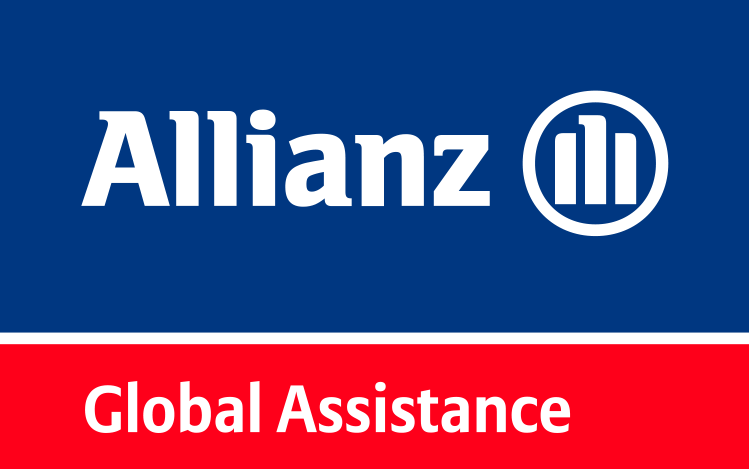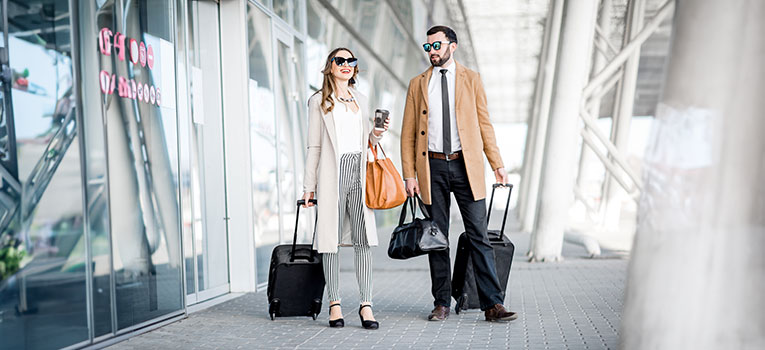Travelling for work can be demanding. You have to be in top mental shape to do your job when you get to your destination, while dealing with jet lag, loss of sleep and general discomfort. You may also be managing a chronic health condition during your travels, struggle to fit in exercise, and battle the stress of navigating busy airports.
Here are some tips on how to stay healthy, balanced and safe while travelling for work.
Thoroughly research your destination. That includes checking travel and health advisories from The Government of Canada and the World Health Organization. Make an appointment with your primary care provider to receive any required vaccinations, and note the number of days it takes to develop full protection from the vaccines.
Additionally, you may want to consider purchasing travel insurance. You should know that your government issued health insurance plan may not fully protect you while you’re travelling outside of your home province. Travel insurance by Allianz Global Assistance may help fill coverage gaps if you experience a medical or dental emergency while travelling domestically or abroad.
If you frequently fly for work, you’re aware of how flying can make you feel dehydrated and sick to your stomach.
You’re feeling dried out because planes pull in air from outside at high altitudes. As a result, cabin air has less moisture than air at ground level. The air can leech the moisture from your skin and eyes, which makes them itchy. It can also drain your lungs of moisture, which makes it harder to breathe and can be a bigger issue for people with pulmonary conditions.
And in the age of COVID, it should be noted that cabin air can make you more susceptible to infectious diseases.
“The humidity in the air keeps our airways moist, allowing the lining to trap germs that enter the body,” says Dr. Mehran Movassaghi in Men’s Health. “In drier air, those mucous membranes don’t function well.”
Drink 8 to 10 ounces of water every hour of your flight, and avoid dehydrating beverages such as coffee and alcohol. Keep a water bottle with you to continue sipping on your layover, in anticipation of your next flight.
Close the overhead air vent to keep the air from blowing directly on you. Use artificial tears if your eyes are dry. And wear a facial moisturizer that contains hyaluronic acid to protect your skin from dryness.
Airplane cabins are pressurized, but the air pressure is still lower than what you experience on the ground. The lower pressure can make you feel bloated and gassy.
And if your destination is rated an intermediate or high risk area in regard to food and waterborne illnesses, you’ll want to take steps to avoid food poisoning.
Minimize bloating while on the plane by avoiding foods that cause gas before and during the flight. Get up from your seat and walk a bit, then head to the bathroom to release pent up gas. When you disembark, take an over the counter gas medication for additional relief if needed.
To prevent getting food poisoning at your destination, avoid food that is raw or cooked rare. Only drink water that is filtered or bottled. Avoid ice in your beverage and brush your teeth with water that is bottled or filtered.
You should also drink beverages that are sealed and it’s a good idea to wipe off the lip of the can or bottle, because even small amounts of water can expose you to a stomach parasite. Avoid produce that does not have peelable skin.
You can also fortify your gut health by taking probiotics two weeks prior to travelling. And a recent study of students travelling to Mexico showed that multiple daily doses of Pepto Bismol may greatly decrease the likelihood of developing traveller’s diarrhea.
To help minimize the impact of changing time zones, try to stick as close to your usual schedule as possible. For example, if you normally go to bed at 10 p.m., stick to that time while at your destination.
To maintain your mental health, refill any SSRIs or other psychotropic medications before your trip. The CDC also advises travellers to book a mental health appointment within a month of leaving to discuss any anxieties you may have about travelling. Maintain any mental health rituals you may have at home such as meditation, reading, and exercise.
As a world leader in travel protection, we help many Canadian residents and visitors to Canada annually travel safely. Let us be there for you too.
Travel insurance is underwritten by CUMIS General Insurance Company, a member of The Co-operators Group of Companies, administered by Allianz Global Assistance, which is a registered business name of AZGA Service Canada Inc.

